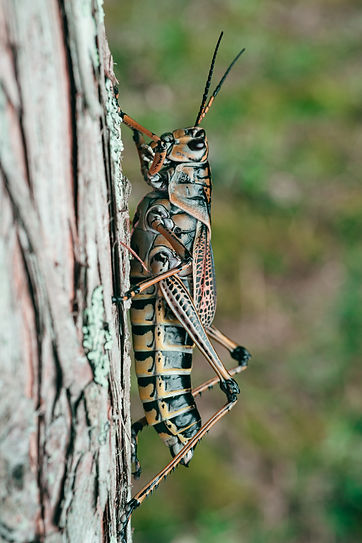pests

pest control
Aside from provincial legislation, the RM of Sutton has in place bylaws and policies regarding the prevention, control, and destruction of plant and animal pests.
rats and mice
The RM appoints a Pest Control Officer (PCO) to inspect all sites around the municipality which are, or have been, used to store agricultural produce, livestock, or poultry.
The PCO watches for signs of infestations and uses rat poison as necessary to control rodent populations.
Rat poison is also available for ratepayers to pick up at the municipal office.
Pesticide labels and information can be found on Health Canada's online Pesticide Label Search or through its Pesticide Label App.

weeds
The RM appoints a Weed Inspector to investigate infestations of prohibited and noxious weeds and take any measures they deem necessary to control the infestation.
Sightings of noxious, prohibited, or invasive weeds can be reported to the Weed Inspector or the municipal office.
The saskinvasives.ca website has helpful resources, including the latest Saskatchewan Invasive Plant Species Identification Guide and Fact Sheets on noxious and prohibited weeds.
iMapInvasives can be accessed online or on mobile (App Store | Google Play) to view or report sightings of invasive species.
Gophers
Gophers (Richardson's Ground Squirrels) emerge from their burrows in early spring, making this the best time to apply chemical controls.
This webinar, hosted by APAS and Saskatchewan's Ministry of Agriculture in July 2022, discusses the habits of the Richardson Ground Squirrel, along with the advantages and disadvantages of different methods of control. The timing of bait application is key!
The Ag Knowledge Centre lists other methods of gopher control, for example modifying grazing practices and encouraging predators such as raptors.
The CAP Gopher Control Program will reimburse up to 50% (excluding GST & PST) of the cost of registered gopher control products and/or supplies for building raptor platforms or nest boxes.
Claim forms are available at the RM office or here.

clubroot
With the passing of the new Plant Health Act in 2024, clubroot is no longer a regulated pest in Saskatchewan.

grasshoppers
According to the Ag Knowledge Centre,
"North America has more than 600 species of grasshoppers. In Saskatchewan there are more than 85 species. Fortunately, only a few species are considered to be of economic importance here. The species that are considered pests are economically important because under ideal food and weather conditions they multiply quickly and when present in large numbers they can cause severe crop damage."
The Ag Knowledge Centre has information on identifying and controlling economically important grasshoppers in Saskatchewan.
Eco Bran grasshopper bait is available to purchase from the RM at the price of $140.00/bag. A bait applicator is also available to rent for $100.00/day.
feral pigs
Feral pigs (aka wild boar) can act as a carrier for livestock diseases such as African Swine Fever.
It is important to keep human food waste inaccessible to feral pigs.
You can take steps to avoid attracting feral pigs to your premises by ensuring your barns, feed storage containers, and waste bins are well secured. Facilities used for holding deadstock until disposal must also be secured.
Feral pig sightings should be reported to
SCIC: 1-888-935-0000
or Sask Pork: 1-833-PIG-SPOT


